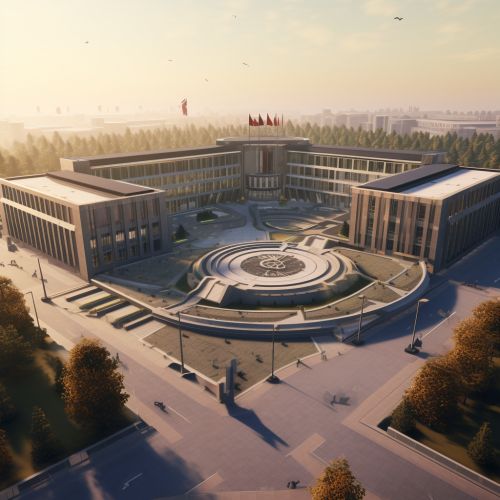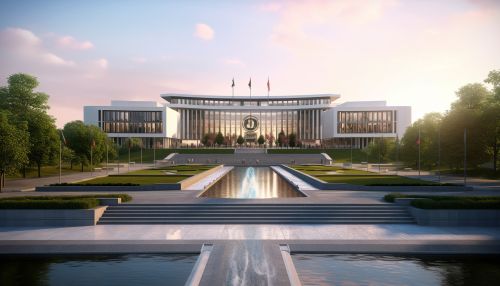Chancellery of the Prime Minister
Overview
The Chancellery of the Prime Minister is a governmental body in many countries that provides administrative and advisory support to the Prime Minister. It is typically responsible for coordinating the activities of the government, managing the Prime Minister's schedule, and ensuring the implementation of government policies.
Function and Role
The Chancellery of the Prime Minister serves a crucial role in the functioning of the government. It is responsible for the coordination of government activities, ensuring that all ministries and departments are working in sync towards the implementation of government policies. This involves monitoring the progress of policy implementation, resolving any inter-departmental issues, and ensuring that the government's activities are aligned with the Prime Minister's vision.
The Chancellery also manages the Prime Minister's schedule, organizing meetings, official visits, and public appearances. It ensures that the Prime Minister is kept informed about important issues and developments, and prepares briefing materials for the Prime Minister's use.
In addition, the Chancellery provides advisory support to the Prime Minister. It conducts research, prepares policy papers, and provides expert advice on a wide range of issues. The Chancellery also plays a role in the drafting of legislation, working closely with the relevant ministries and departments.


Structure
The structure of the Chancellery of the Prime Minister varies from country to country, but it typically includes several key components. The head of the Chancellery, often known as the Chief of Staff or Secretary-General, is usually a senior civil servant or political appointee who is responsible for overseeing the operations of the Chancellery and advising the Prime Minister.
Under the head of the Chancellery, there are typically several departments or units, each responsible for a specific area of work. These may include a policy unit, a communications unit, a legal unit, and an administrative unit. Each unit is headed by a director or manager, who reports to the head of the Chancellery.
Role in Policy Making
The Chancellery of the Prime Minister plays a significant role in policy making. It is involved in the initial stages of policy development, conducting research and analysis, and preparing policy proposals for consideration by the Prime Minister and the cabinet. The Chancellery also plays a role in the drafting of legislation, working closely with the relevant ministries and departments.
Once a policy has been approved, the Chancellery is responsible for coordinating its implementation. It monitors the progress of implementation, resolves any issues that arise, and ensures that the policy is having the intended impact.
Historical Development
The Chancellery of the Prime Minister has evolved over time, reflecting changes in the role of the Prime Minister and the nature of government. In many countries, the Chancellery has grown in size and importance as the role of the Prime Minister has become more complex and demanding. The Chancellery has also had to adapt to changes in the political and administrative environment, such as the increasing importance of media and communications, and the growing complexity of policy issues.
